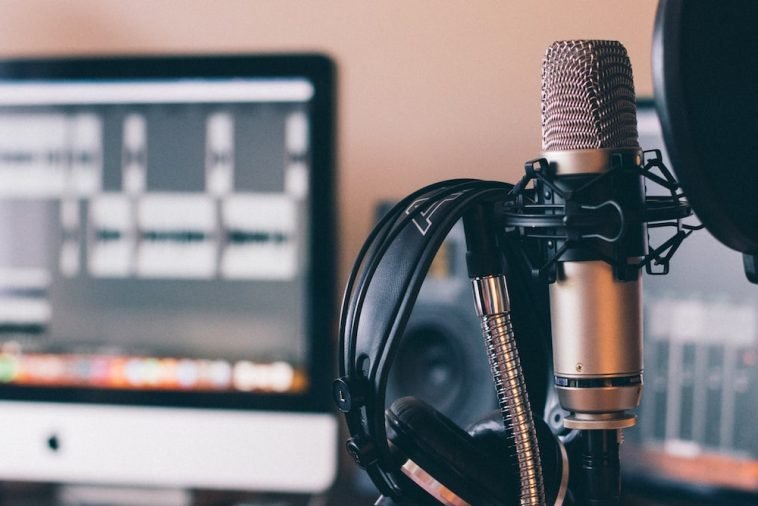You might think radio is a relic. In our world of podcasts and streaming, it feels like a voice from the past. But here’s the truth I’ve learned from building businesses online and offline: some classics never fade, they evolve.
In Nigeria, radio isn’t just alive; it’s thriving. It’s the background soundtrack to millions of lives, the trusted voice in traffic, the community hub in villages and cities alike.
Starting a radio station here is more than a broadcast dream. It’s a powerful, tangible business with deep roots and real reach.
As someone who’s navigated digital spaces and affiliate marketing for years, I see radio’s unique value. It combines local trust with massive audience potential. It’s a business of voice, community, and, done right, solid revenue.
Let’s walk through how to build it, step by step, without the fluff.
Step 1: Validate Your Niche and Audience
Don’t buy a single piece of equipment yet. Start with research. A station for everyone is a station for no one.
Who are you
speaking to? Are you targeting the youth in Lagos with the latest Afrobeats and pop culture talk? Or are you serving a state capital with news, civic information, and local music? Maybe it’s a dedicated gospel station or a business-focused channel.
Define this clearly. Your niche dictates your programming, your advertising appeal, and your license type. Talk to people in your target area. What do they listen to now? What’s missing? This groundwork is your business foundation.
Step 2: Understand the Licensing Maze (The Most Critical Step)
This is the part I urge you to take seriously. The regulatory body is the National Broadcasting Commission (NBC). You cannot operate without their license. The process is detailed and requires patience.
You’ll need to apply for a broadcast license. They categorize licenses—terrestrial (FM/AM), satellite, etc. For a community or commercial FM station, you’re looking at a terrestrial license.
Your application must include a detailed business plan, technical plans (covering your proposed coverage area), programming schedule, proof of company registration with the CAC, and clear details of your funding.
The NBC scrutinizes your character, financial capacity, and editorial policy. Engage a lawyer familiar with media law early. This step is non-negotiable and its success hinges on thorough, professional preparation.
Step 3: Choose Your Technology and Location
Your license application will ask for your technical specs. You need to plan your transmission setup.
First, the studio.
You need a soundproofed space for your broadcast studio (where the presenters talk) and often a separate production studio.
You’ll need mixing consoles, microphones, headphones, computers with broadcast software, and playout systems.
Then, the transmitter. This is the heart of your broadcast. Its power (measured in watts) determines your coverage radius. You’ll need a transmitter, a transmission line, and an antenna mounted on a mast or tower.
The location of this tower is paramount. It needs height and a clear geographical position for optimal coverage.
Site surveys are essential. Partner with a reputable broadcast engineering company. They’ll handle the technical design and installation.
Step 4: Build Your Team and Content Strategy
Your voice is your product. Who will create it?
You’ll need a Station Manager, Broadcast Engineers, Program Directors, Presenters, News Anchors/Reporters, Sales Executives, and perhaps marketing staff. Start lean. Many early roles can be combined.
Now, your programming grid. This is your content schedule for the entire week. Balance is key. Mix music blocks with talk shows, news bulletins, phone-in segments, and religious programs if it fits your niche. Pre-record some shows for efficiency. Live shows drive engagement. Your content must resonate deeply with the niche you chose in Step 1. Authenticity wins every time.
Step 5: Plan Your Revenue Streams
A station is a business. You need to make money to sustain and grow it.
Advertising is your primary income. Sell airtime slots (e.g., 30-second ad spots), sponsored programmes, and jingles. Build a strong sales team to reach out to local and national businesses.
Other streams include paid announcements (birthdays, obituaries), sponsored event coverage, and maybe even syndicating your best shows to other stations. Think about digital extensions early—a basic website with live streaming can open up online ad revenue.
Step 6: Launch and Grow Relentlessly
With your license, team, and tech in place, plan a soft launch. Test everything thoroughly for weeks. Do test transmissions. Work out the kinks.
Then, go live. But launching is just the beginning. Marketing your station is continuous. Use social media aggressively. Tease upcoming shows. Clip and share engaging moments. Get your presenters out into the community for events.
Listen to your audience. Use phone-ins, social media polls, and text messages to get feedback. Be prepared to tweak your programming. The station that listens gets listened to.
FAQs (The Real Questions I Get Asked)
“How much does it actually cost to start?”
This is the biggest question. For a small-scale FM station in a state capital, you should be prepared to spend tens of millions of Naira.
The license fees, studio equipment, transmitter, mast, generator (power is non-negotiable), and salaries for the first few months add up quickly. Secure your funding first.
“Can I start an online radio station instead to avoid NBC?”
For a purely online, internet-streaming station, the NBC regulations are different and less cumbersome initially. It’s a fantastic, lower-cost way to test your concept and build an audience. But remember, your reach is limited to those with good internet. It’s a great starting point, but the mass audience in Nigeria is still on traditional FM radio.
“Isn’t the market too competitive?”
Every market has competition. Your niche and your unique presentation are your differentiators. There’s always room for a fresh, authentic voice that serves its community genuinely. Don’t compete on everything; dominate your chosen corner.
The Bottom Line
Starting a radio station in Nigeria is a serious, capital-intensive venture. It’s not a side hustle. It’s a commitment to infrastructure, regulation, and community service.
But the reward is a powerful, respected, and profitable platform. You become a genuine part of people’s daily lives in a way a social media page or website often can’t match.
In a digital age saturated with screens, the intimate, human voice coming through a speaker still holds a unique power. It builds trust, shapes culture, and drives conversation. You’re not just building a business; you’re building a local institution.
So, the question isn’t just about frequencies and transmitters. It’s about voice. What unique voice do you have, and what community is waiting to hear it?





GIPHY App Key not set. Please check settings